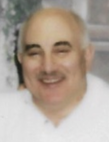Earlier today, I finished a letter to my friend, Bruce. He is active in prison ministry and lives in South Carolina...
In his letter to me, he was sharing about his time in the Army, how that, in 1969, he was serving in a field artillery unit in Vietnam.
So when I wrote him back, I gave Bruce an overview of my Army days. I told my friend that I enlisted in the U.S. Army in June 1974. I had just finished high school, graduating by the minimum of passing grades because I hated school so much and used every opportunity to cut classes. I was trying to find my place in the world. I had little self-discipline, and I thought the Army would be the way to find myself.
So when I wrote him back, I gave Bruce an overview of my Army days. I told my friend that I enlisted in the U.S. Army in June 1974. I had just finished high school, graduating by the minimum of passing grades because I hated school so much and used every opportunity to cut classes. I was trying to find my place in the world. I had little self-discipline, and I thought the Army would be the way to find myself.
I found myself taking basic training at Fort Dix, New Jersey. I then took infantry training at Fort Polk, Louisiana. From here I went overseas to serve a thirteen month tour in South Korea near the Demilitarized Zone (DMZ) which separates South Korea from Communist North Korea. I never saw combat because, technically, these nations were now at peace, although there would still be occasional clashes and violent incidents along the Zone. And for this I received an additional $65 per month in pay (Hazardous Duty Pay) because it was considered to be a dangerous area. My "Military Occupational Specialty (MOS)" was 11B20, infantryman and foot soldier, more commonly referred to by Army personnel as a "Grunt."
Finally, when my tour of duty overseas was up, I was sent back to the United States and was reassigned to Fort Knox, Kentucky. Since there wasn't an infantry unit at Fort Knox, which I didn't know until I got there, I ended up having to be retrained for another MOS. I became a clerk typist and was subsequently assigned to the headquarters of a basic training unit. It was here, by the way, where I first learned how to use a typewriter. This would come in handy today where I type this journal inside a prison cell.
Anyhow, being a clerk in Battalion Headquarters had its moments of stress. The telephones were always ringing. There was no end to the paperwork, which is common in the military bureaucracy. It was boring, redundant work. I couldn't wait until my three-year term of enlistment was complete, and it was in June of 1974.
At this time I was granted an Honorable Discharge and I returned home to New York City.
D.B.
Finally, when my tour of duty overseas was up, I was sent back to the United States and was reassigned to Fort Knox, Kentucky. Since there wasn't an infantry unit at Fort Knox, which I didn't know until I got there, I ended up having to be retrained for another MOS. I became a clerk typist and was subsequently assigned to the headquarters of a basic training unit. It was here, by the way, where I first learned how to use a typewriter. This would come in handy today where I type this journal inside a prison cell.
Anyhow, being a clerk in Battalion Headquarters had its moments of stress. The telephones were always ringing. There was no end to the paperwork, which is common in the military bureaucracy. It was boring, redundant work. I couldn't wait until my three-year term of enlistment was complete, and it was in June of 1974.
At this time I was granted an Honorable Discharge and I returned home to New York City.
D.B.

 RSS Feed
RSS Feed